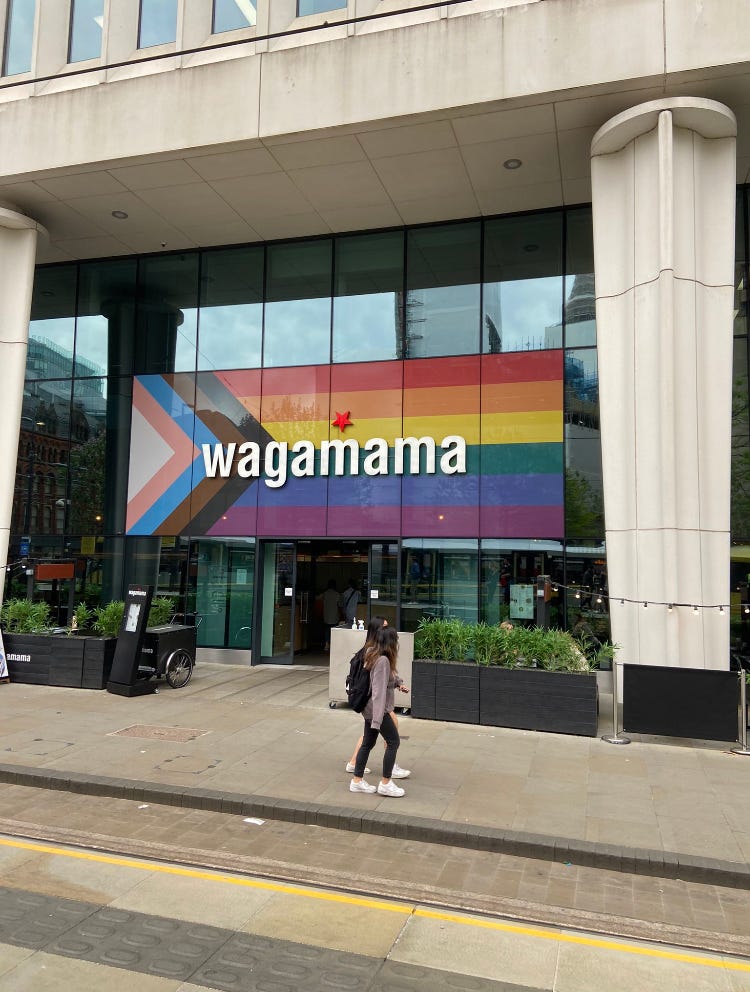Consumerism versus life
Consumerism versus life
The choice is yours
In one generation we have progressed from a state of aimless stability with a broad expectation that society would coast into more of the same, to a vertiginous chaos of social decline. If we are honest, we no longer expect to see the standards of living rise in any meaningful way. It is enough to hope we can hold on to what we have.
Is there any way to calculate the success of a society in a bureaucratic model? We are usually treated to quarterly forecasts of GDP, which have taken a back seat recently to soaring inflation. The interest rate is always of interest, since so many of us, like our governments, live on debt. We pay the monthly interest on the credit cards and mortgages and hire purchase agreements we have. This is called ‘servicing’ our debts, and is perhaps how our ‘service economy’ is understood.
In place of rising aspirations, comfortable and unchallenged freedoms, stable communities and a human scale society we have only cheap consumer goods and services. These are soon not going to be as cheap as they were.
There is little attempt to present the state of society beyond the numbers about money. The reasons for this are obvious to anyone who lives in it. In the cities and now elsewhere our populations have become mere crowds, strangers to one another and to the place they inhabit. A general rootlessness drags beneath these currents of mutual strangers like an undertow, threatening to take your feet from beneath you, and to transport you somewhere else, somewhere equally disconnected.
The consumer mentality is not simply the feeling which accompanies a new pair of shoes. It is a means of training people to invest their desires and dreams in the buying of things. These passions drive consumption, which since the 1920s has been about the replacement of needs with wants.
This is an important shift, because it means the consumer is the site of a deliberate change in the provision of goods and services. It is the consumer who has changed - who has been changed - to see in their purchases the promise of something more than function. It is themselves they see, altered, improved, empowered, signalled as a success or as a pioneer. Yet never satisfied.
Selling products at scale is far more successful when they are attached to aspirational desires. As genuine aspiration vanishes from real life they become yet more attractive - an exotic treat instead of owning a house, an absorbing video game with a pleasing map instead of a stable community.
Consumerism encourages a sense of power conferred on the individual as buyer - the customer is always right, of course, when they are buying. For a moment at least you can feel as if the spotlight has chosen to hesitate on you. We have all felt that thrill, the smile from the cashier or the sales assistant, the tantalising promise of the thing to be possessed. Yet the light goes out, and the magic melts away. It becomes just another thing in time, and we go on to repeat the process in memory of that sanctifying glow. What purchasing can sometimes offer is attention, significance, the feeling that for a moment at least, you matter.
Yet the more we consume the less we matter to each other. In feeding an artificial appetite it comes to displace the natural hunger for human society. The appeal of the transaction is that it is completed from a place of privilege unlikely to be challenged. It is flattering. Real life relations are complicated by the existence of the demands and needs of the other, which are cancelled in the glorious moment of retail therapy.
The mentality which indicates the consumer personality is the transactional approach to fellow humans. In this view, other people are fungible - they are as replaceable as Lego men - and they have no real significance beyond their power to satisfy or hamper your desires. Against this is the relational view, where people understand one another from the point of view of shared experience derived from durable relations with family, friends and community. The consumer is ideally isolated, at home only with their desires.
It is becoming a trope to say that our societies are geared to addiction, but the evidence for this is so widespread that it is staggering to witness the enormous project of dependence engineering which secures what we used to call brand loyalty. From actual drugs - legal and otherwise - we see a model emerge of misshapen desire yoked to a habit. Antidepressant use is normal, weed and pills are everywhere. There is an opiate epidemic. Aside from this, practically every area of consumption is somehow branded as therapy.
The worst of these is therapy itself. There is a difference in the therapies afforded to those on fire, and those whose lives are being consumed in a slow burn, but it is a difference only in the nature of the emergency.
Therapy is an attempt to replace the human relationships which we need to sustain us in a life worth living. Parents are absent from the home, as are children - who are now largely ‘cared for’ by strangers. Work consumes life, often on screen, and life afterwards is lived vicariously through distortions of reality known as entertainment.
Therapy is simply another addiction. To deny it to the desperate seems cruel, but how cruel is it that an expensive stranger is required to heal the wounds of life? That therapy is seen as a positive model for consumer gratification is itself an indication of the sickness in society. Wellness, pampering, lifestyle sampling, the reach for a purchased service to fill the hole, online gambling, pornography, booze, food fetishism, sugar, starch, plastic.
Consumerism promises to fill a hole it has dug in the self, and it is a false promise. In replacing need with desire it sought to create an endless market promising ever increasing sales, as the unlimited desires bred from gleaming advertisements can never be satisified. It teaches us to think inside the box, which we cannot wait to open.
Everything has become an accessory to the consumer self. Babies can be bought from surrogates, who remain faceless when the happy - often homosexual male - couple pose for their hospital photos. Holidays take place in formerly beautiful locations which are now under occupation from a transient flow of browsers. You can alter your own face, your body, with surgery. The acme of consumerism and its fusion of money with desire is the transgender phenomenon.
This is the pinnacle of purchase power, which has always whispered the lie in your ear that through buying something you can escape yourself. To become a new person. A new identity confers escape, release, it sneers at God and man alike, saying “I alone have escaped”. That radiant spotlight can be wrenched on to your every word, its presence summoning the dramatic behaviour which so often accompanies this autoerotic alchemy of surgery and stage makeup and drugs.
The reason it is taboo to fail to applaud this horror is that to do so is to deny the supreme mystery of the consumer cult: that you can truly buy who you want to be. This is the only promise remaining in our dissolving culture, whose Liberalism is entering a barbarising endgame. There are no aspirations on offer outside the marketplace. The bizarre situation is that of a global system, dizzying in magnitude and waste, whose towering complexity is calibrated to the pinhead of the individual self. It is no wonder we have been crushed.






Comments
Post a Comment